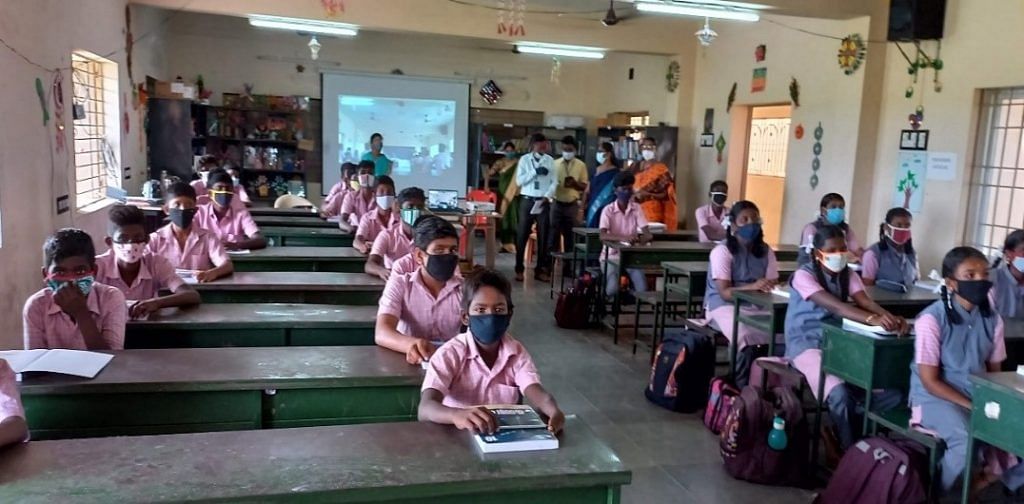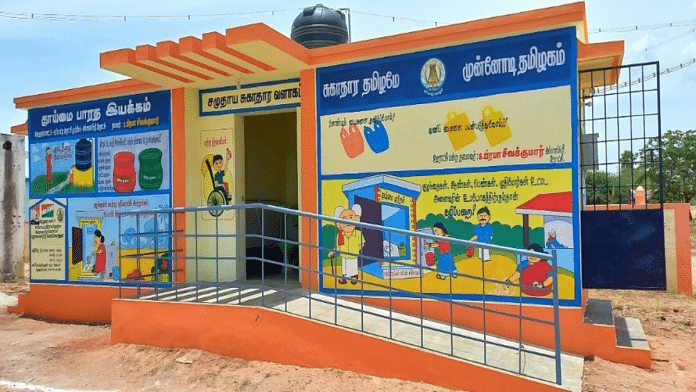The Indian government has been focusing on 112 under-developed districts of the country through NITI Aayog’s key project – the Aspirational Districts Programme. The programme tracks 49 Key Performance Indicators (KPIs) under five themes: Health and nutrition, education, agriculture and water resources, financial inclusion, skill development and infrastructure. The focus is to identify low-hanging fruits for improvement and measure progress by ranking districts on a monthly basis.
Effective policy making requires a prompt redressal and feedback mechanism, and NITI Aayog carries out visits of ‘Young Professionals’ to the aspirational districts for this. As a Young Professional, I went to the Virudhunagar in Tamil Nadu and witnessed the district collector, IAS officer Meghanatha Reddy, make the lives of children and the disabled easier by focussing on sanitation, access and literacy.
Aid for the disabled
About 2.2 per cent of India’s population lives with some kind of physical or mental disability, as per the Survey of Persons with Disabilities released in 2019 by the National Statistics Office (NSO). Accessible toilets are one of the pivotal features of the Right of Persons with Disabilities Act, 2016. Project Udhayam, conceptualised and successfully implemented by Reddy in Virudhunagar, is an initiative to build accessible and affordable toilets for the disabled. The project runs in tandem with the United Nations Sustainable Development Goals (2030 Agenda) that focuses on universal access to clean water and sanitation.
The vision behind the project started in 2021 is to ease the lives of the disabled by providing them with the basic sanitation facility in their home. A total of 100 toilets have been built to date and many others are in the pipeline. The toilets are equipped with a ramp, western commode, hand faucet and rail. They have been designed to allow easy passage of a wheelchair. The model can be easily scaled up and replicated across different parts of India. No one should be deprived of the right to sanitation because of a lack of funds.
Real-time data is maintained of the disabled residents and updated by field personnel who conduct regular checks. During one of those visits, it came to their notice that a disabled resident was facing an issue with his wheelchair and all efforts were made to get it fixed at the earliest.

Also Read: State govt has taken myriad steps to empower specially-abled children, says Assam CM
Focus on literacy and learning outcomes
Virudhunagar undertook additional efforts during the Covid-19 lockdown to support the online education of children in the district. The rural areas have their own challenges like power shortages, but the schools managed to bridge the gap and circulated pre-recorded videos of classes to the students. After school help-hours were made available for students in case they had queries and or could not join the class.
An Intervention Centre for Children with Disabilities ensured that officials made weekly visits to children’s homes so that they were not deprived of education. As per Census 2011, the average literacy rate in the Virudhunagar district was 80.1 per cent, and it is among the higher-ranked districts when it comes to literacy. A recent survey conducted by Reddy identified two students who dropped out due to Covid and directed the school staff to bring them back.
A unique and commendable initiative started by Reddy is “Coffee with the Collector”, where he invites a group of school children from different schools of Virudhunagar every week to know more about their education and the challenges they are facing. This makes the bureaucracy more inclusive. Virudhunagar district has pursued other noteworthy reforms like improving green cover in drought-prone areas by creating the Miyawaki forest, setting up milk banks in hospitals and Project Kanmani (customised nutrition kits for children delivered every 15 days at their doorstep by Anganwadi staff).
Just as the vision of Prime Minister Narendra Modi is to have bank accounts for all, the vision of DM Reddy is to provide insurance to each and every individual in Virudhunagar. Social security can significantly revamp the lives of people and provide that missing safety net. One village in Virudhunagar has already achieved a milestone by ensuring insurance for all. While there is a long way to go in several development indicators, ‘the journey of a thousand miles begins with one step’.
Drashti Shah is a Young Professional, Economics and Finance Cell, NITI Aayog. Views are personal.



